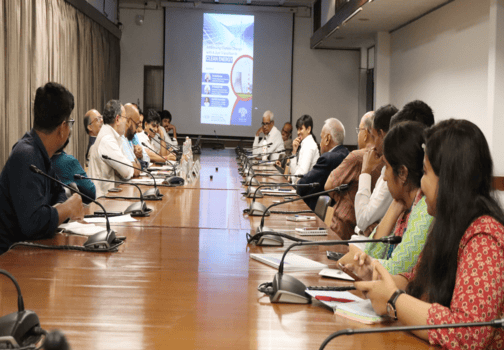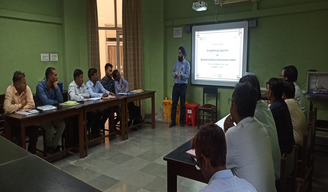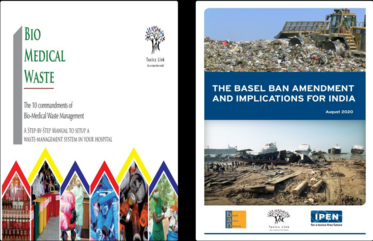CONSUMPTION OF ANTIBIOTICS
GOVERNMENT OF INDIA
MINISTRY OF HEALTH AND FAMILY WELFARE
DEPARTMENT OF HEALTH AND FAMILY WELFARE
LOK SABHA
STARRED QUESTION NO. + *419
TO BE ANSWERED ON 28TH MARCH, 2025
CONSUMPTION OF ANTIBIOTICS
+*419. SHRI GIRIDHARI YADAV:
Will the Minister of HEALTH AND FAMILYWELFARE be pleased to state:
(a) whether the report of the Indian Council of Medical Research has revealed that unnecessary consumption of antibiotics by the patients leads to antibiotic resistance and these become ineffective and consequently high antibiotic medicines are prescribed to such patients and if so, the details thereof;
(b) whether failure or delay in timely formulation of a strict policy regarding the usage and disposal of an antibiotic is likely to cause one crore deaths every year from the year 2050 and if so, the details thereof;
(c) whether the Government proposes to formulate any policy to ban unnecessary prescription of antibiotics along with the consumption thereof; and
(d) if so, the time by which it is likely to be done and if not, the reasons therefor?
ANSWER
THE MINISTER OF HEALTH AND FAMILY WELFARE (SHRI JAGAT PRAKASH NADDA)
(a): Indian Council of Medical Research’s (ICMR) Annual Report, 2023 on Antimicrobial Resistance Research & Surveillance Network, states that antibiotic overuse and misuse are the biggest drivers of Antimicrobial Resistance (AMR). Continuous surveillance of antimicrobial susceptibilities is crucial for tailoring empiric antibiotic therapy, optimizing patient outcomes, and controlling the spread of resistance. The dynamic nature of resistance patterns requires ongoing monitoring and adaptive strategies to maintain the efficacy of current antibiotics. Therefore, implementing robust antimicrobial stewardship programs, routine susceptibility testing, and developing new therapeutics are essential to address the growing threat of antimicrobial resistance in clinical settings. ICMR’s Annual Report, 2023 may be seen at thefollowinglink:
https://www.icmr.gov.in/icmrobject/uploads/Documents/1725536060_annual_report_2023.pdf
(b) to (d): Ministry of Health and Family Welfare (MoHFW) is aware about the challenges posed by AMR in India and has taken various regulatory measures to check the misuse of antibiotics and to monitor/regulate antibiotic prescriptions, especially for over-the-counter sales:
• MoHFW launched Red Line awareness campaign on Antimicrobial Resistance, urging people not to use medicines marked with a red vertical line, including antibiotics, without a doctor’s prescription.
• Antibiotics are included in Schedule H and H1 of the Drugs Rules, 1945. These drugs have specific caution labelling requirements and are to be sold only under the prescription of a Registered Medical Practitioner.
• Government has issued National Treatment guidelines for judicious use of antibiotics. The guidelines on Infection Prevention and Control aims at prevention and control of healthcare associated infections to reduce the use of antibiotics in healthcare settings. Above can be accessed at
• The Government of India, though, Central Drugs Standard Control Organization (CDSCO) regulates safety, efficacy and quality of the drugs under the provisions of Drugs & Cosmetics Act, 1940 & its rules.






